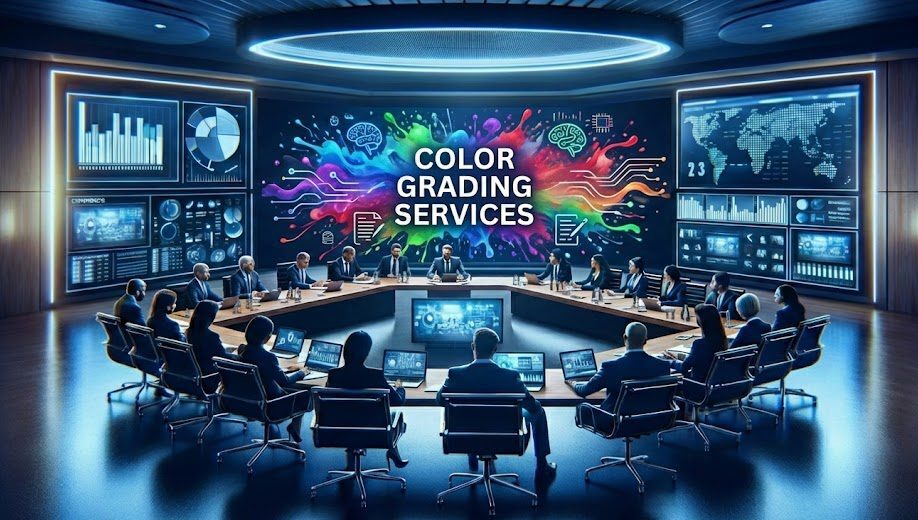In our increasingly interconnected world, localization companies play a pivotal role in ensuring content resonates across diverse cultures and languages. These linguistic and cultural experts are the unsung heroes behind the seamless global experiences we encounter daily, from blockbuster movies to cutting-edge software. As businesses expand their reach, the demand for top-notch content localization services has skyrocketed, making localization vendors indispensable partners in global communication strategies.
What to Expect: Dive into the world of localization, explore the services offered by the best localization companies, and gain insights into how these firms are shaping global content strategies. Whether you’re a content creator, a business leader, or simply curious about how global media is adapted, this guide will illuminate the fascinating world of content localization and multimedia adaptation.
Table of content
-
- The Role of Localization in Global Content Strategy
- Top Localization Companies: Industry Leaders
- Services Offered by Localization Vendors
- Technology and Innovation in Localization
- Choosing the Right Localization Partner
- Challenges and Opportunities in Content Localization
- Future Trends: The Evolution of Localization
The Role of Localization in Global Content Strategy
Localization companies are essential for:

- Cultural Adaptation: Ensuring content is culturally appropriate and resonant.
- Language Precision: Providing accurate translations that capture nuances and idioms.
- Market Penetration: Helping businesses effectively enter new global markets.
- User Experience: Enhancing product usability for diverse international audiences.
- Brand Consistency: Maintaining brand voice and messaging across different cultures.
Industry Impact: Effective localization can significantly boost a product’s global appeal and market performance.
Discover the top-rated content localization companies shaping the industry in 2024
Explore the Power of Localization
Top Localization Companies: Industry Leaders
Several firms stand out as the best localization companies:
- TransPerfect: Known for comprehensive language services and technology solutions.
- Lionbridge: A global leader in AI-powered localization and data training.
- SDL (now part of RWS): Offers end-to-end localization and content management solutions.
- Welocalize: Specializes in digital transformation and multilingual content.
- BLEND (formerly OneHourTranslation): Focuses on rapid, quality localization services.
Company Spotlight: These top localization companies often work with Fortune 500 clients, shaping global communication strategies.
Services Offered by Localization Vendors
The best multimedia localization providers offer a range of services:
- Translation and Transcreation: Adapting text while maintaining original intent and style.
- Subtitling and Dubbing: Making audiovisual content accessible across languages.
- Software Localization: Adapting user interfaces and documentation for global markets.
- Website Localization: Ensuring websites are culturally and linguistically appropriate.
- Multilingual SEO: Optimizing content for search engines in different languages.
- Cultural Consulting: Providing insights on cultural norms and preferences.
Service Insight: Many localization companies now offer end-to-end solutions, managing the entire process from content creation to distribution.
Download a Longer List of Localization Companies
Technology and Innovation in Localization
The best global localization companies leverage cutting-edge technology:
- Machine Translation (MT): Using AI for faster, more efficient translations.
- Translation Memory (TM): Storing and reusing previously translated content.
- Neural Machine Translation (NMT): Employing advanced AI for more natural translations.
- Cloud-Based Platforms: Enabling real-time collaboration and project management.
- Augmented Reality (AR) Localization: Adapting AR experiences for different cultures.
Tech Trend: The integration of AI and machine learning is rapidly transforming the localization industry, improving speed and accuracy.
Embrace Localization Innovation
Discover how technology is reshaping the localization landscape
Choosing the Right Localization Partner
When selecting from top localization companies, consider:
- Expertise in Your Industry: Look for experience in your specific field.
- Technology Stack: Assess their use of modern localization tools and platforms.
- Quality Assurance Processes: Understand their methods for ensuring accuracy.
- Scalability: Ensure they can handle your current and future needs.
- Cultural Knowledge: Evaluate their understanding of target markets.
- Turnaround Time: Consider their ability to meet your deadlines.
Selection Tip: Look for localization vendors that offer customized solutions tailored to your specific needs and target markets.
Harness Cutting-Edge Production Companies
Future Trends: The Evolving Landscape of Chicago TV Production
The Chicago production scene is constantly evolving:
- Increased Streaming Content: More companies focusing on creating content for streaming platforms.
- Virtual Production: Adoption of technologies like LED walls and real-time rendering.
- Sustainability: Growing emphasis on eco-friendly production practices.
- Diverse Storytelling: Increased focus on representing Chicago’s diverse communities.
- Cross-Media Production: Companies expanding into VR, AR, and interactive content.
Future Focus: Keep an eye on how Chicago production companies are integrating new technologies like AI and virtual production into their workflows.
Challenges and Opportunities in Content Localization
The localization industry faces both hurdles and potential:
Challenges:
- Maintaining Context: Ensuring translations capture the original meaning and tone.
- Keeping Pace with Technology: Adapting to rapidly evolving digital platforms.
- Cultural Sensitivity: Navigating complex cultural nuances and taboos.
Opportunities:
- Emerging Markets: Tapping into new, growing global audiences.
- AI Integration: Leveraging artificial intelligence for more efficient processes.
- Multimedia Expansion: Adapting content for diverse media formats.
Industry Insight: The most successful localization companies are those that can balance technological innovation with deep cultural understanding.
Future Trends: The Evolution of Localization
The future of localization is dynamic and exciting:
- Real-Time Localization: Instant translation and adaptation of live content.
- Hyper-Personalization: Tailoring content to individual cultural preferences.
- Voice-Activated Localization: Adapting content for voice search and assistants.
- Neurolinguistic Programming (NLP): Enhancing machine understanding of context.
- Virtual Reality (VR) Localization: Adapting immersive experiences for global audiences.
Future Focus: The most innovative localization companies are already experimenting with these emerging technologies and strategies.
Key Takeaways
- Localization companies play a crucial role in global content strategies and market expansion.
- Top localization firms offer a wide range of services, from translation to cultural consulting.
- Technology, especially AI and machine learning, is transforming the localization industry.
- Choosing the right localization partner involves considering expertise, technology, and cultural knowledge.
- The industry faces challenges in maintaining context and cultural sensitivity but offers significant opportunities in emerging markets and new technologies.
- Future trends point towards real-time, personalized, and immersive localization experiences.
Frequently Asked Questions
While translation focuses on converting text from one language to another, localization involves adapting content to suit the cultural, linguistic, and technical requirements of a specific locale.
Project duration varies widely depending on complexity, volume, and languages involved. Simple projects might take days, while complex multimedia localization could take months.
While machine translation has improved significantly, human expertise is still crucial for ensuring cultural appropriateness, context, and nuance in localized content.
Top localization companies employ native speakers and cultural experts to address dialectal variations and ensure content is appropriate for specific regional audiences.
Learn More
For more insights into the localization industry, visit the Localization































